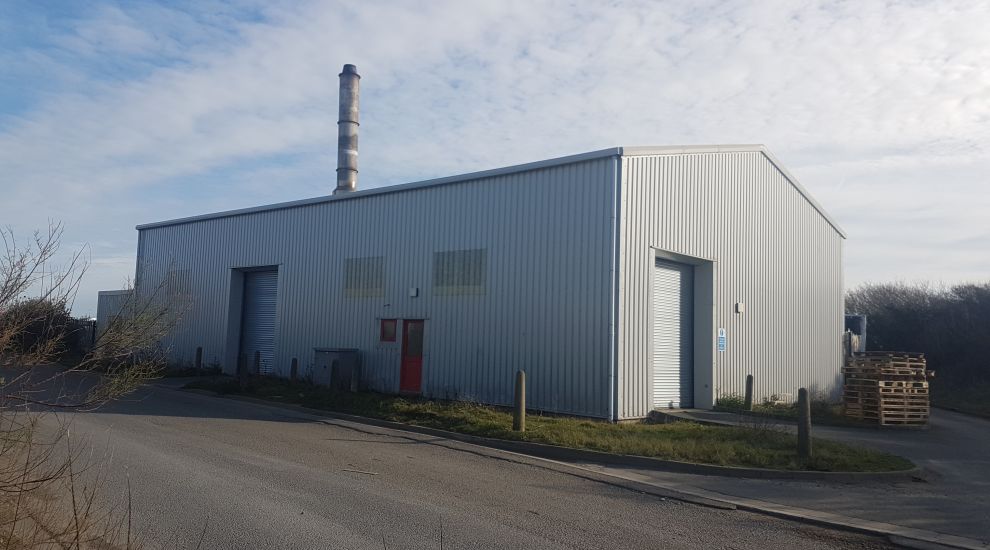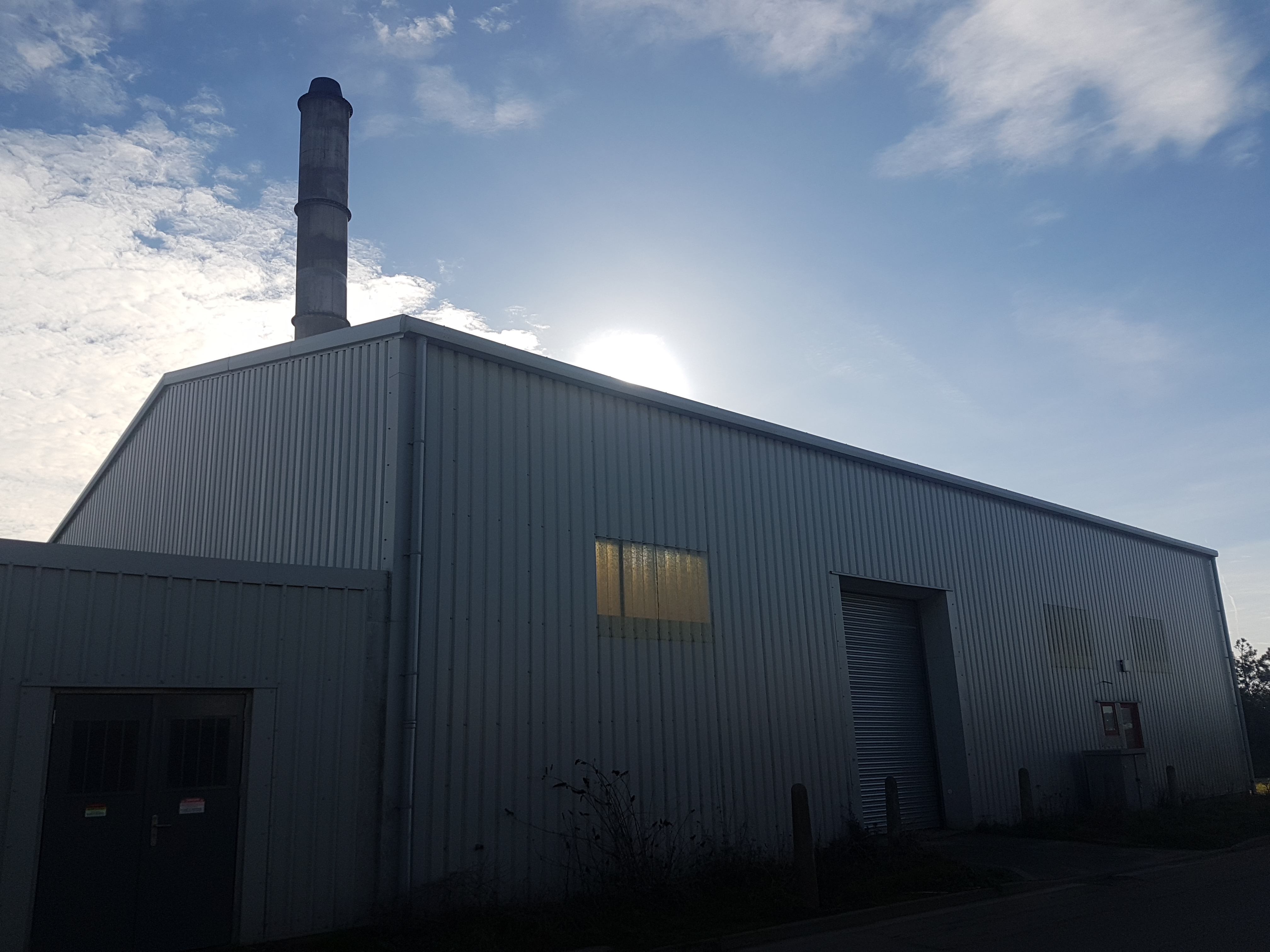


Pigs, sheep and goats could be shipped to Guernsey for slaughter while Jersey's abattoir is out of action.
Cattle might not be able to be accommodated here due to strict rules around importing different breeds, but Guernsey's States Vet has said the island could help out while Jersey is facing a farming crisis after Storm Ciaran damaged its abattoir.
It was closed shortly before the storm hit earlier this month for routine maintenance, but suffered extensive damage to its roof, main structure and equipment.
Repair efforts have been hampered by the presence of asbestos, meaning a deep clean of the building will be needed before the electrics can be fixed.
With farmers told their livestock may not be able to go to slaughter until just days before Christmas, Jersey's authorities have been in touch with David Chamberlain in Guernsey, while Jersey's Government is also looking at other options such as importing and constructing a 'flatpack' facility.
Jersey's infrastructure Minister Tom Binet has said he hopes the facility can be opened by mid-December and that his department is putting "pressure on the contractors to move as quickly as they can".

Pictured: Deputy Binet said importing a temporary abattoir would be "extremely expensive and time consuming".
Jersey Farmers Union president Peter Le Maistre this week described the setback as a "big blow" for the industry, while Kate Hackett of Brooklands Farm warned that customers seeking local meat products this Christmas would find “nothing” unless the situation changed.
During a scrutiny hearing, Deputy Binet said that "lots of alternatives have been investigated".
This, he explained, included the possible importation and construction of a temporary abattoir – though he said would be "extremely expensive and time-consuming" – as well as discussions with Guernsey about processing Jersey livestock.
David Chamberlain, the States Veterinary Officer for Guernsey, confirmed that the island was investigating how it might be able to help.
"We, the States Vets, and the Abattoir Team are keen to help relieve the situation in Jersey," he explained.
"We are looking to assist by processing some of their livestock in Guernsey.
“The processing of beef from Jersey is particularly problematic because there have not been any imports of cattle into the Bailiwick of Guernsey for well over 100 years. The law preventing the import of cattle was put in place to protect our iconic Guernsey breed of cow."
However, he noted that, while his team wants "to help our colleagues in Jersey", they must also ensure that "we don’t set a precedent that could threaten our island breed".
"I am working with the finest Law Officers to try to find a solution," Mr Chamberlain added.

Pictured: States Vet, David Chamberlain.
He explained that the difference in laws between cattle and other livestock means smaller animals could be imported for slaughter more easily. There are other laws which wouldn't apply because the animals would simply be here to be culled not to enter the farming industry or food chain.
"...many of the animals that would be coming to us would ordinarily need some import license, which would be based on the health of the animals because we don't want to import animals which potentially bring diseases with them, but clearly these animals are not coming here to live and mix in with Guernsey animals. They're coming here and they're going straight to an abattoir where they're going to be processed if you like, so those same sort of health requirements aren't strictly necessary.
"The other good news is that Guernsey and Jersey pretty much have the same sort of health status for their animals, if anything Jersey can evidence that slightly better than Guernsey purely because they have the money to do a lot more testing than us so they have always known to have official freedom status from various diseases.
"So I haven't got a problem allowing animals to come from Jersey to Guernsey if they're going straight to slaughter.
"The only problem we do have is that both islands probably haven't imported cows from anywhere outside of their Bailiwicks for at least 100 years, so that's quite a big principle to break. What I have said to the guys in Jersey is it would be probably easier and quicker for us to go with sheep, pigs and goats and if we really need to think about moving cows let's see if we can leave that right to the end."
Mr Chamberlain said this would take some of the immediate pressure off Jersey's farmers by enabling the slaughter of the smaller livestock species while not breaching any import bans which are there to protect the integrity of both the Guernsey and Jersey dairy herds.
"It's very important that the movement occurs in such a way that is compliant with welfare in transport regulations and that protects the welfare of the animals," added Mr Chamberlain.
"One of the most important things with transporting animals is to try and keep that journey time to a minimum. So you don't want them hanging around at the harbour for hours waiting to get checked in. You don't want them being detained at the border into Guernsey. You want them to be able to move through swiftly to the abattoir, so all of those things would need to be looked at to preserve the animal's welfare."

Pictured: Guernsey's abattoir.
Mr Chamberlain said for animal welfare reasons the livestock would have to be shipped in via St Peter Port Harbour, rather than St Sampson's which is nearer to the abattoir, because of the ro-ro ramp at the White Rock.
"They could be in a lorry, and they could just be driven straight off, up the front, that would be a much quicker, more secure journey," Mr Chamberlain explained.
"What you don't want to be doing is having to unload animals from one vehicle to another. They want to stay in the one vehicle they've been put in."
Mr Chamberlain said there are still other issues to consider too, such as the fact that our abattoir is currently running at full capacity fulfilling needs of local farmers and shoppers.
"...what I have said to the chaps in Jersey is, you may need to supply a slaughter team to come over and assist, and you will need to provide a chiller lorry for the carcasses to go into, because our chillers could already be fully occupied.
"They would have to potentially take the carcasses and put them straight into a chiller ready to chill down and then take back at their convenience."
He added that, while our abattoir is smaller than the one in Jersey, "we certainly would do everything in our power to assist a friend in need as it were".
Pictured top: Guernsey's abattoir at Longue Hougue.
Comments
Comments on this story express the views of the commentator only, not Bailiwick Publishing. We are unable to guarantee the accuracy of any of those comments.